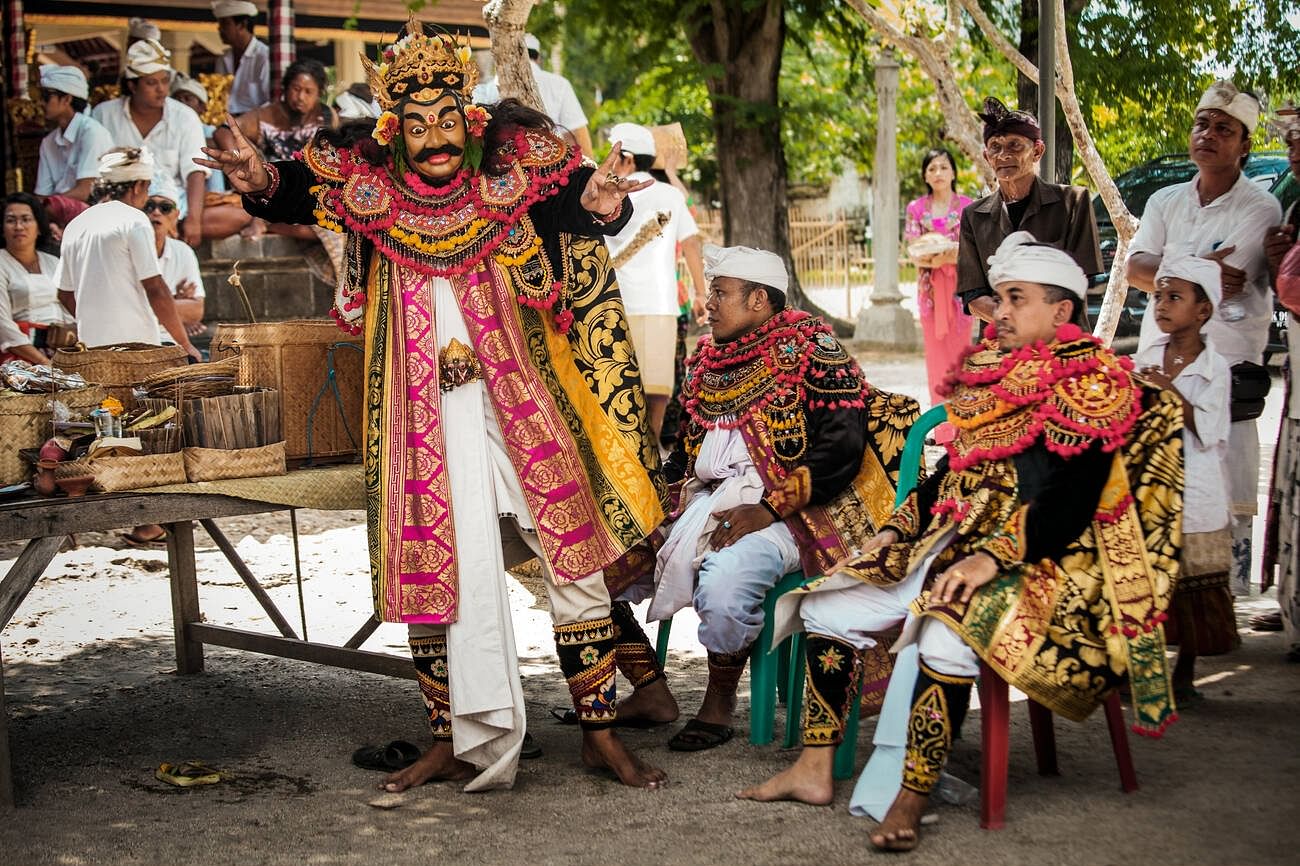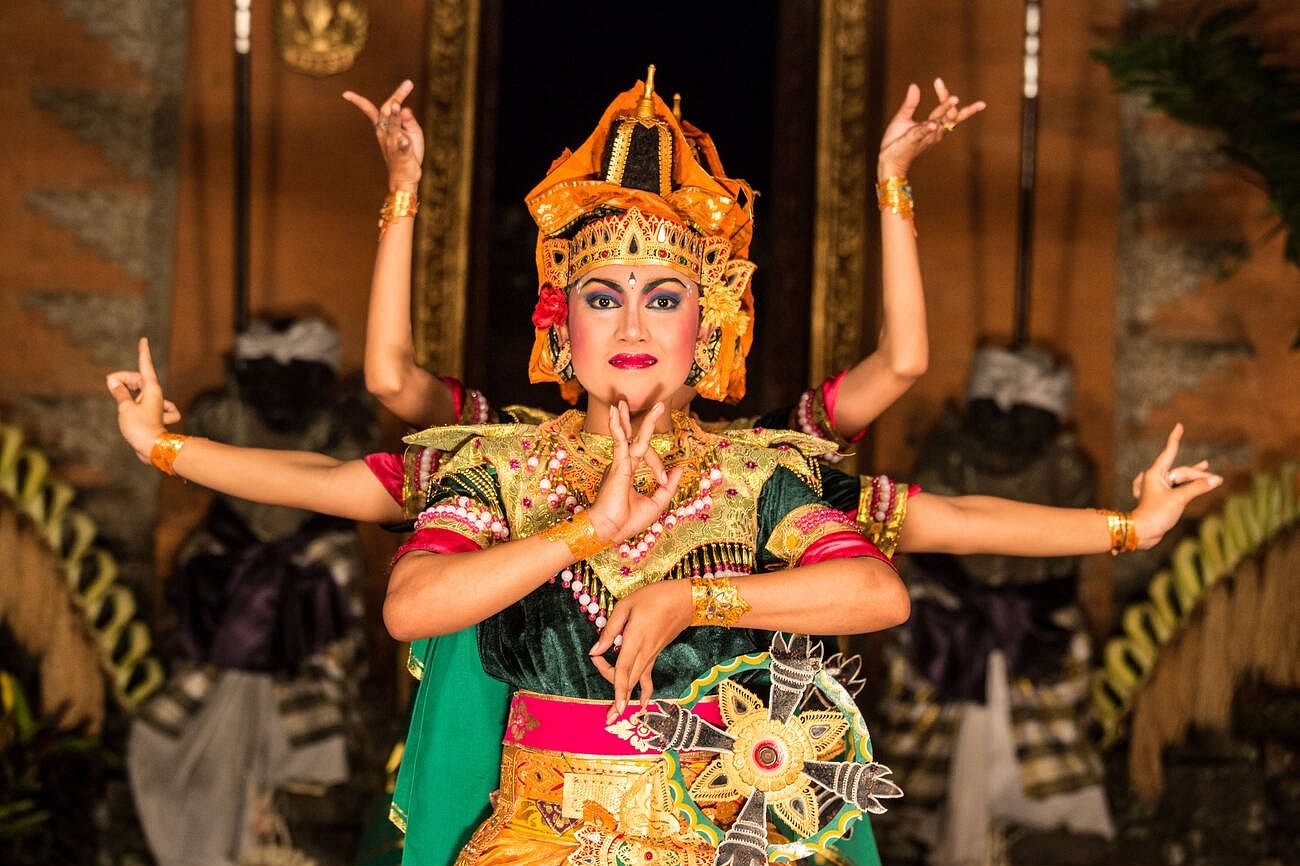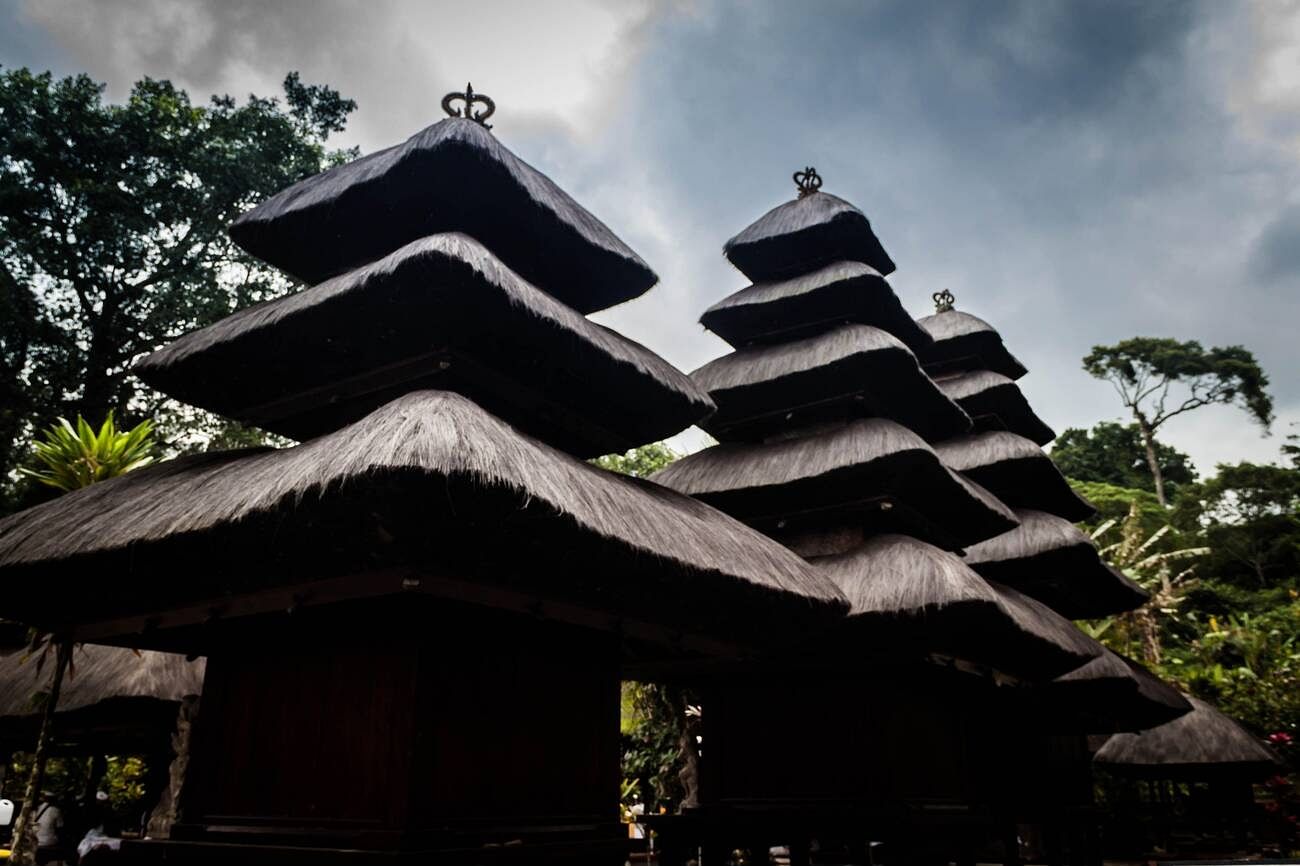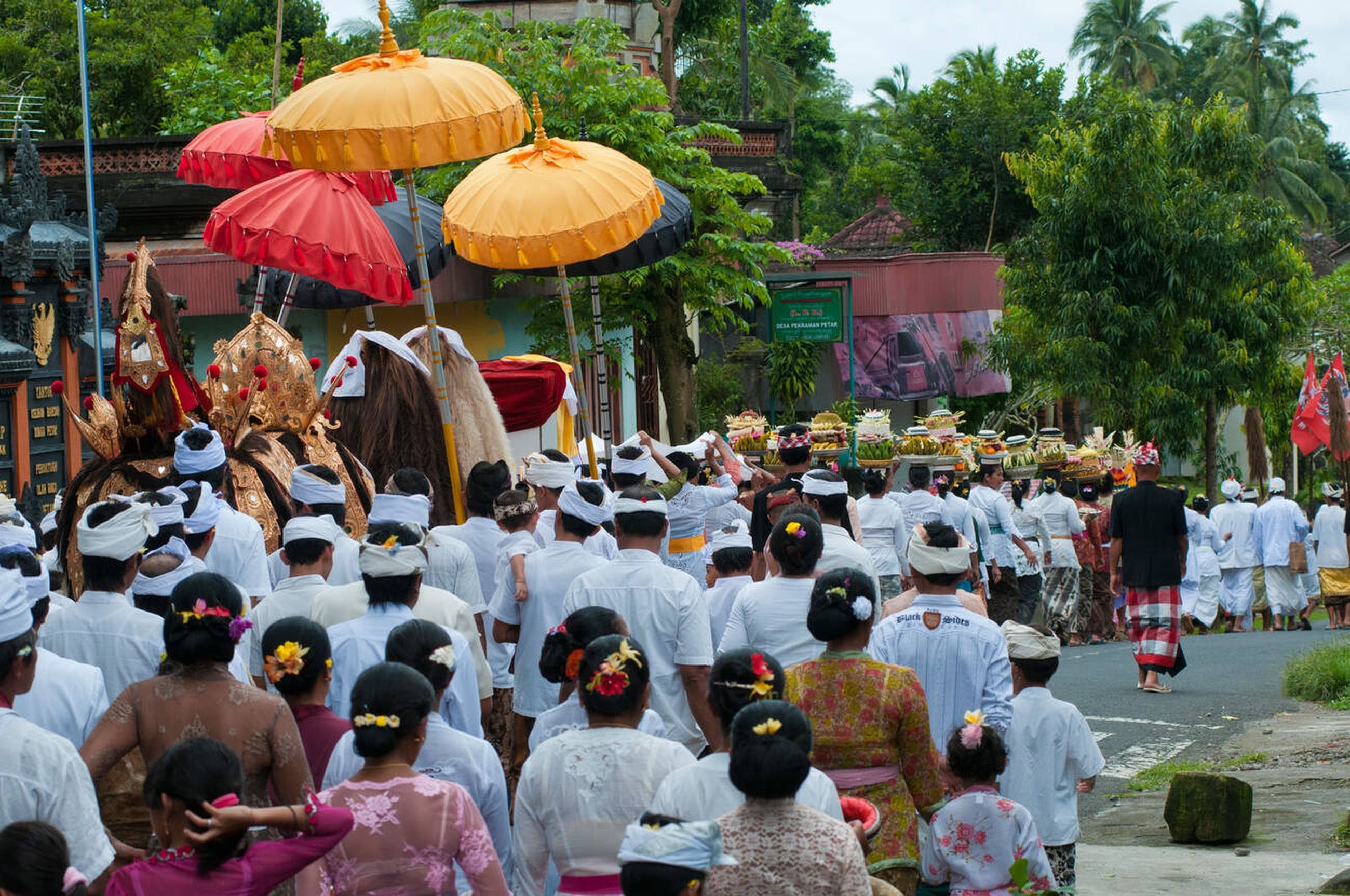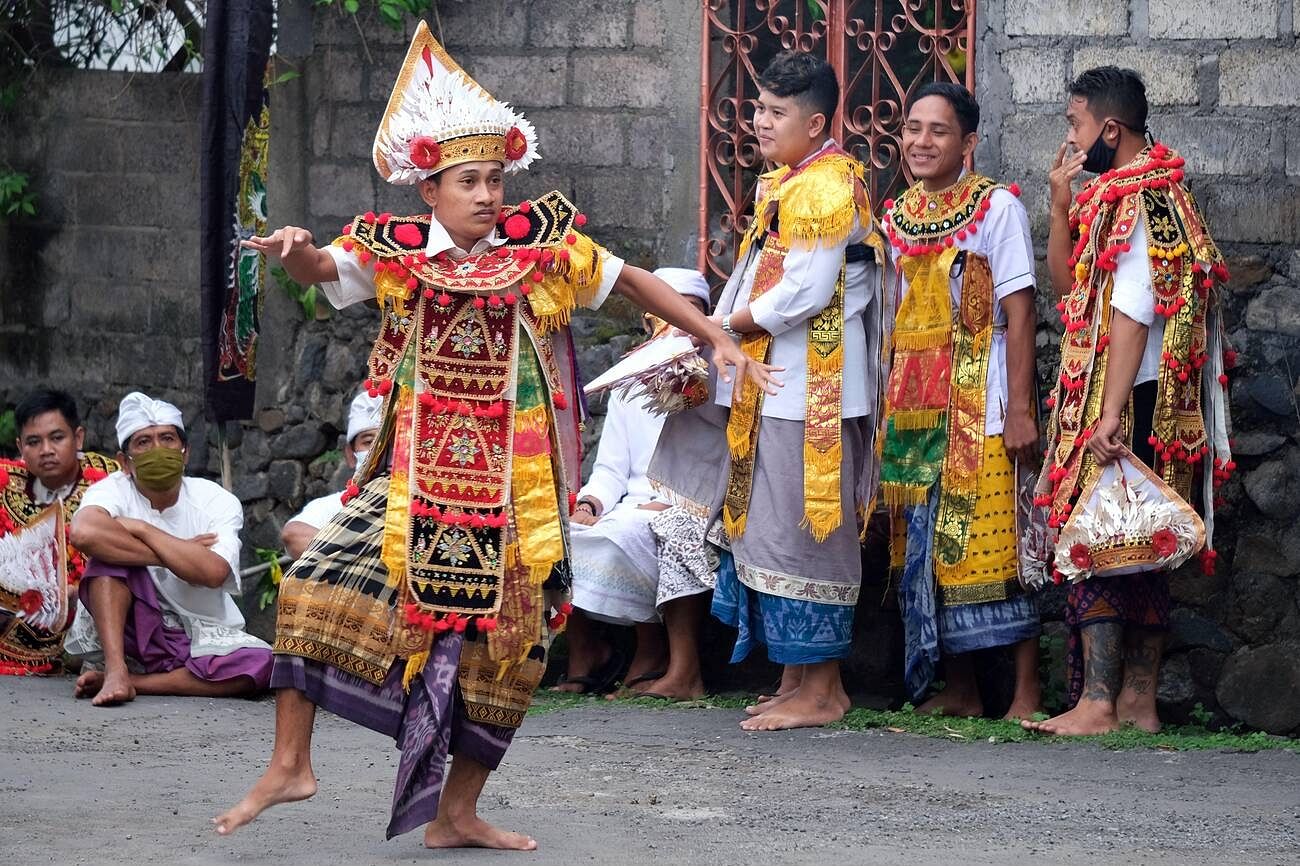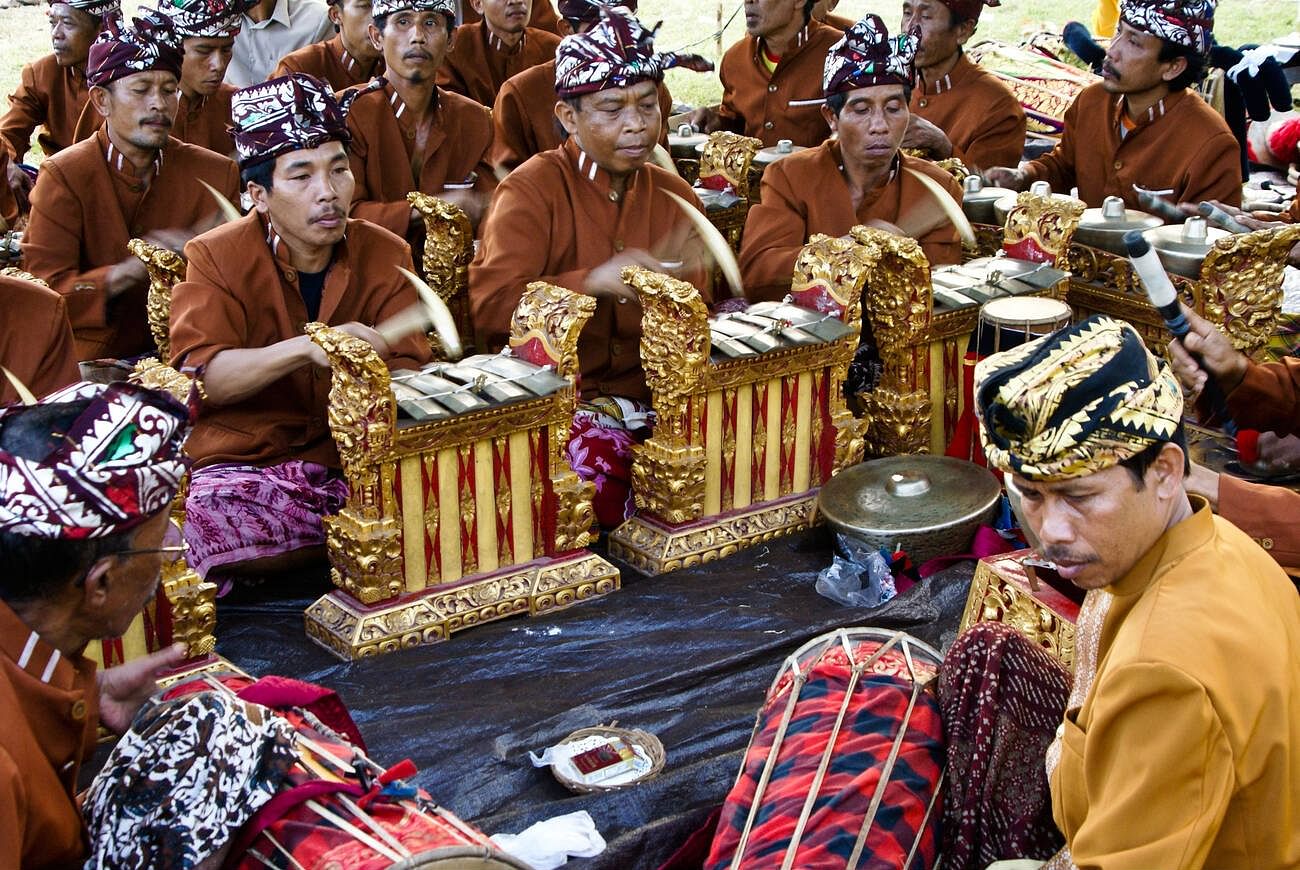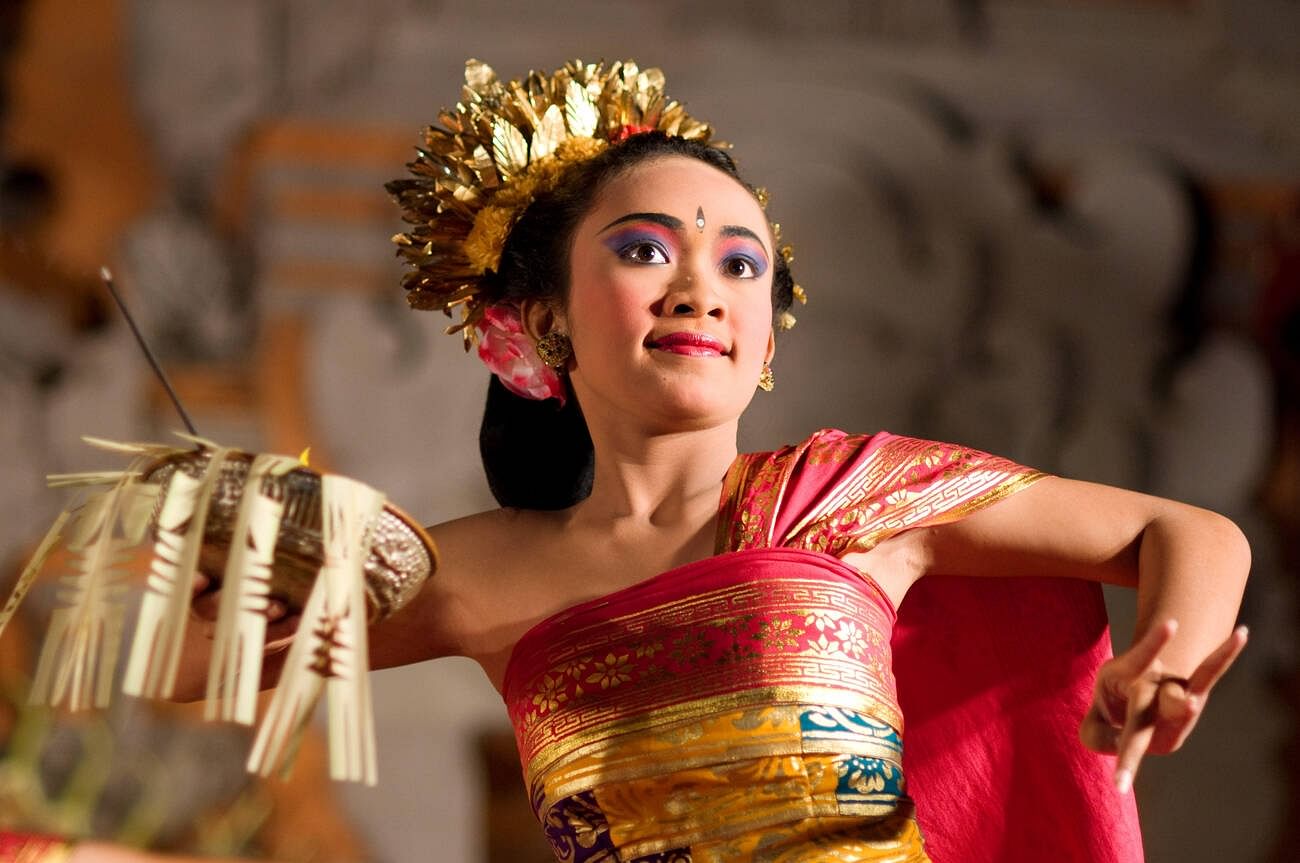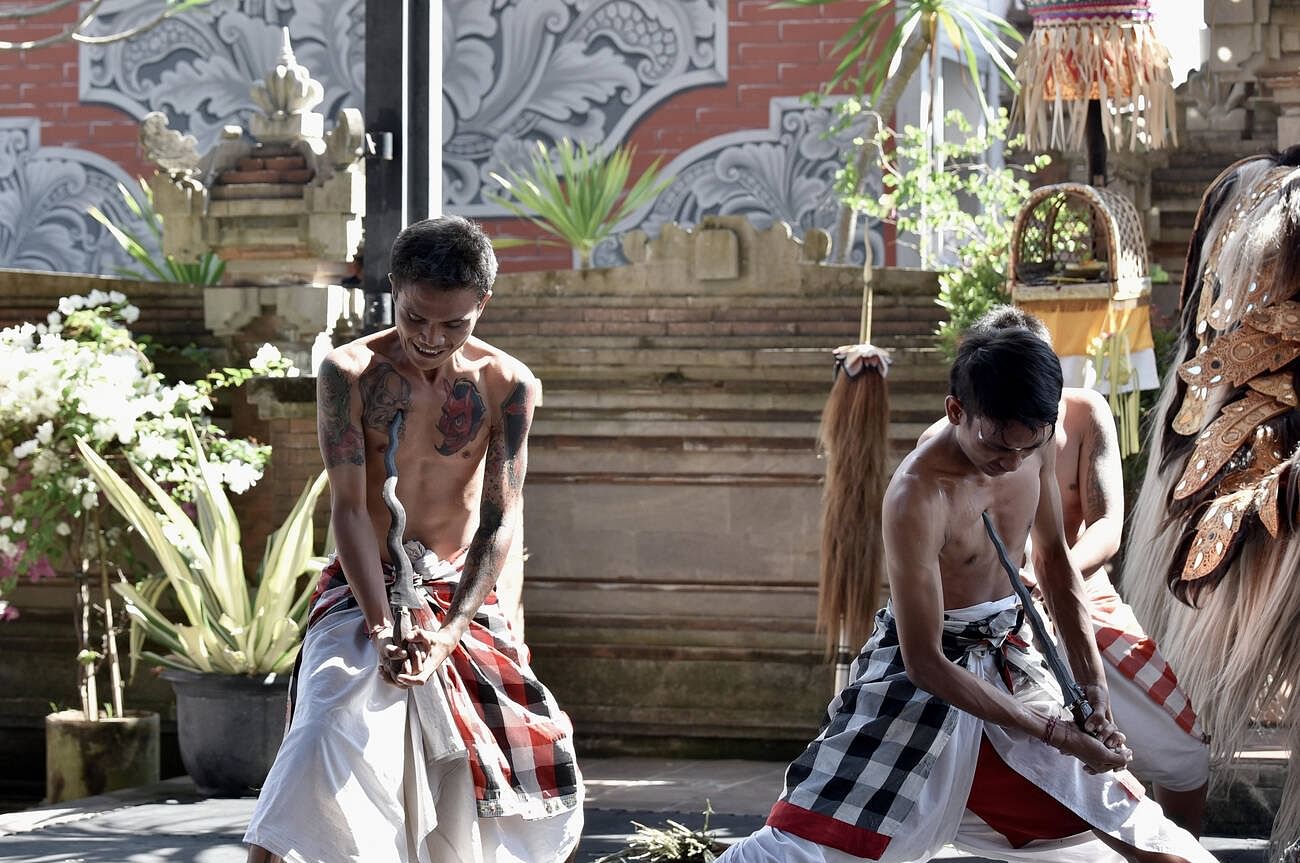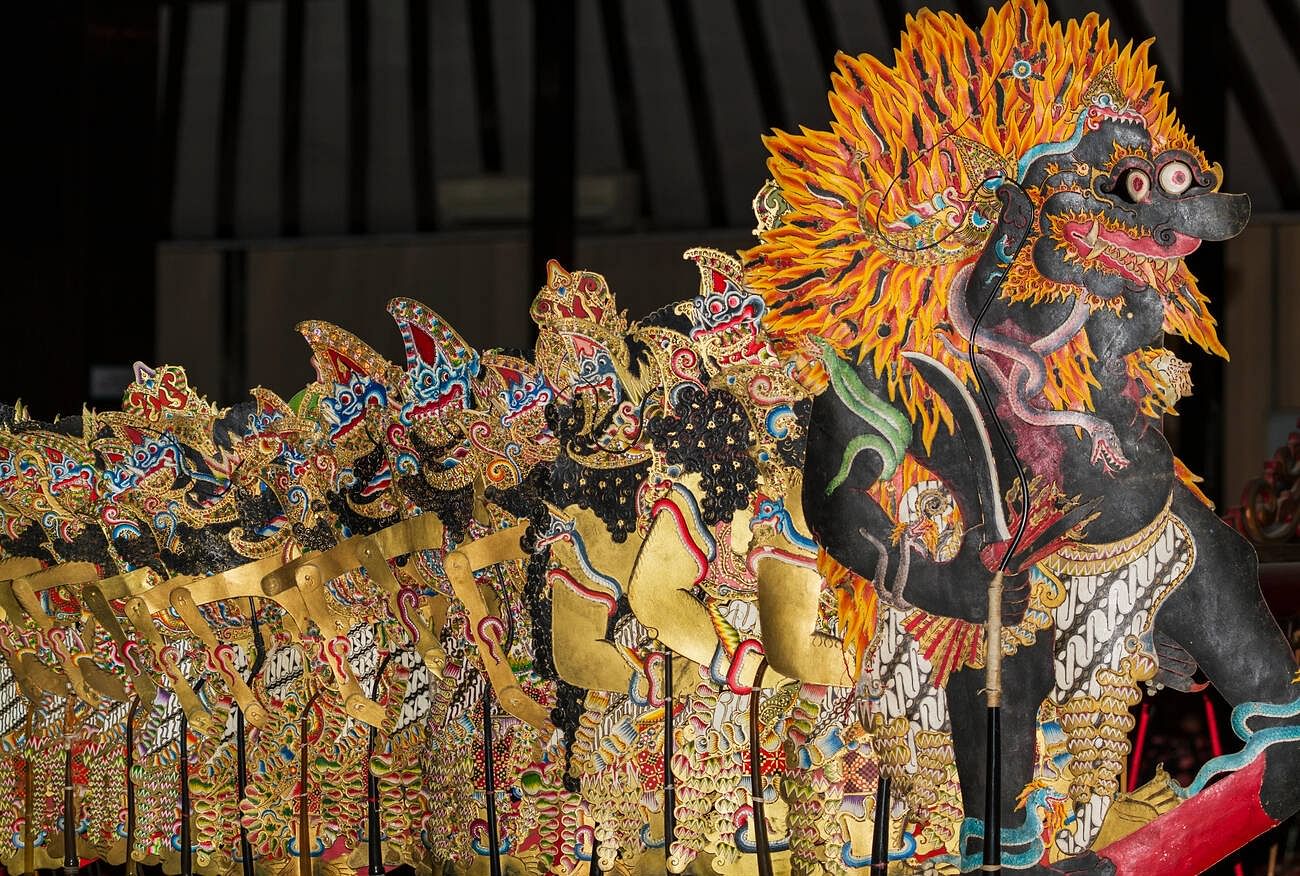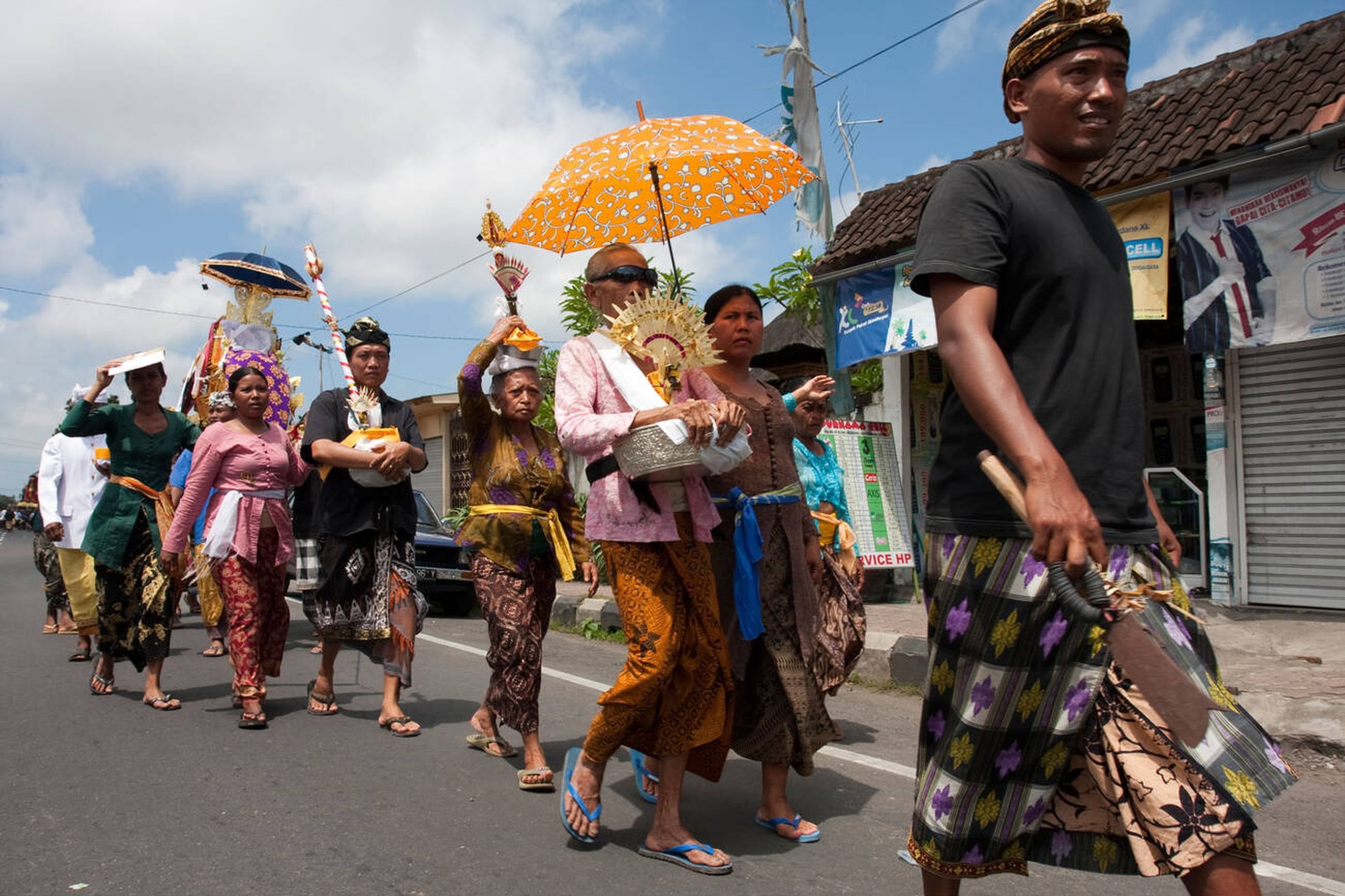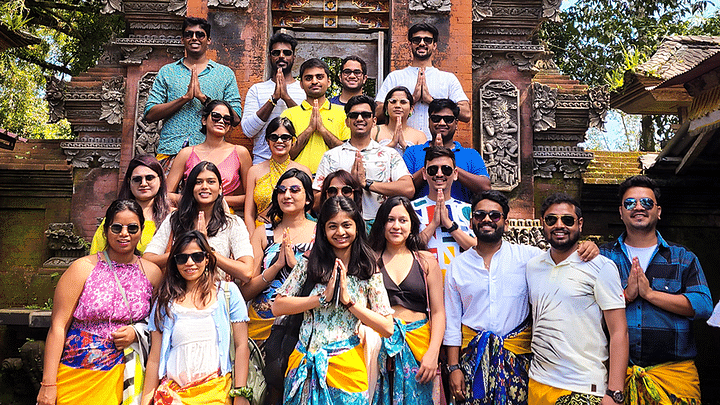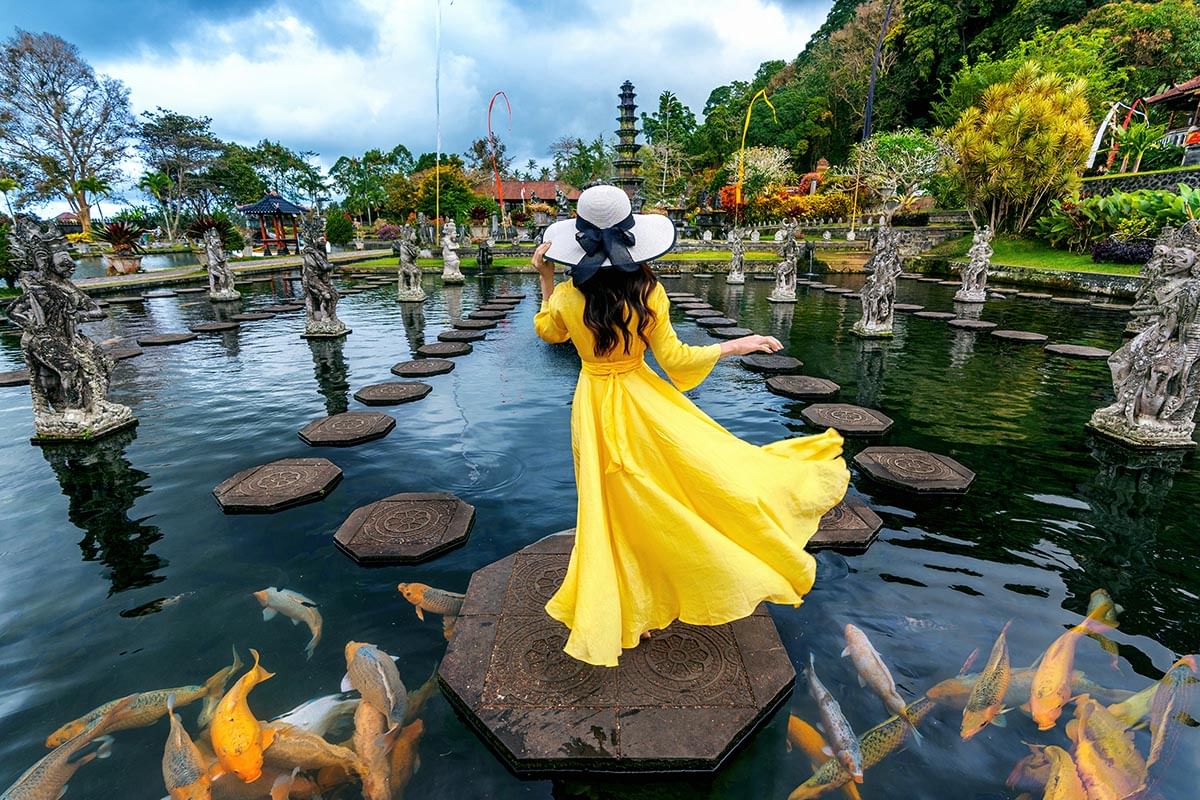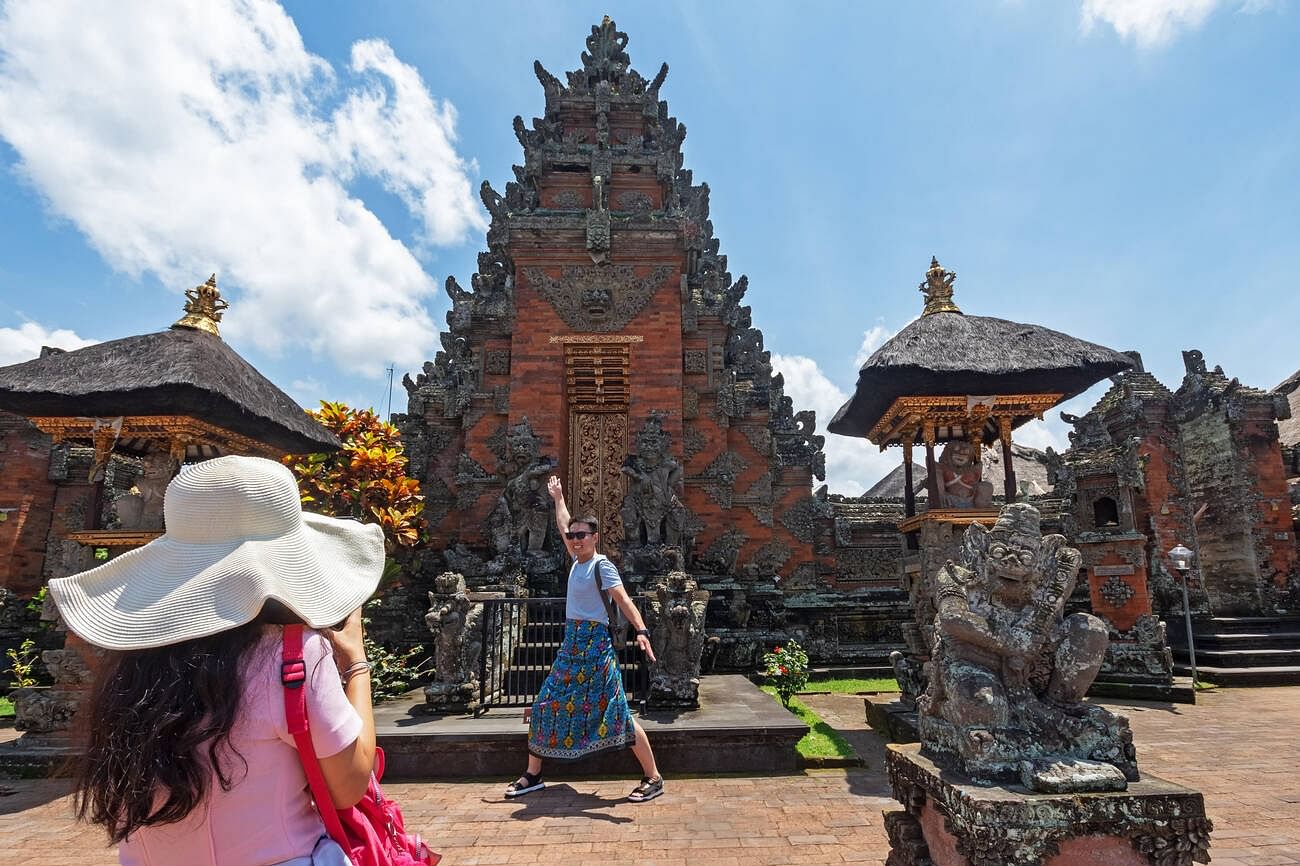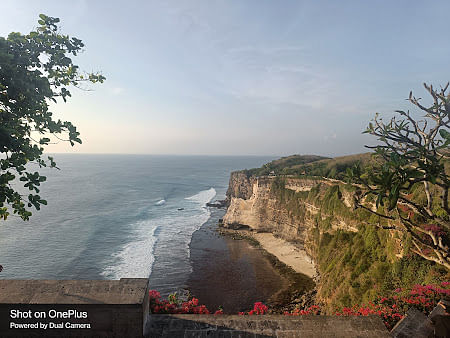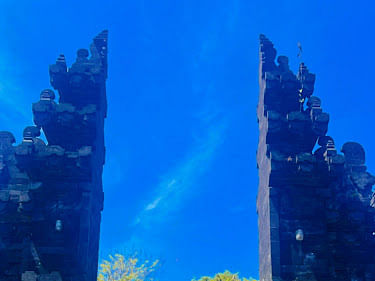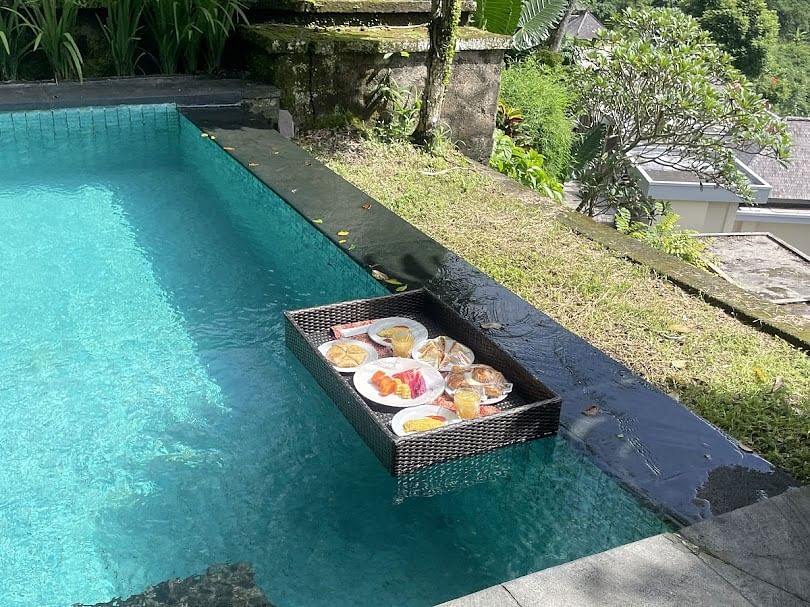Did you know that enchanting dances, Martial Arts, Balinese shadow plays, and offerings to God are some of the widely followed customs in the Island of the Gods, Bali? Only the best Bali Trip Packages can guide you to plan your holiday to this Island and experience the culture of Bali all in real-time.
Bali culture and traditions impact almost every aspect of life on the island and draw people to Bali to see and experience it. The Balinese people follow a form of Hinduism known as Agama Hindu Dharma.
An important belief of Balinese Hinduism is that the elements of mother nature are influenced by spirit. The Hindu influences are combined with the original ancestor worship practices on the island, separate from Indian Hinduism.
Let's explore the Hinduism influence on Bali, its temples, art forms, dances, and festivals which represent the culture in Bali.
Hinduism And Its Influence
Hinduism is the foundation stone for nearly every aspect of the Bali culture but one must understand how Hinduism reached Bali in the first place.
Hindu influences reached the Indonesian Archipelago as early as the first century. There are two major theories for this that compete with each other:
- South Indian sea traders brought the faith with them and slowly won over the people of Bali (and Java back then, though Java is now Islamic)
- Indonesian royalty welcomed Indian religions and culture, and it is they who first adopted these spiritual ideas followed by the masses.
Indonesian islands adopted both Hindu and Buddhist ideas, fusing them with pre-existing native folk religion and Animist beliefs.
While Bali is part of an independent Indonesia, there are still several royal families on the island, but they play no formal role in governing Bali and are purely ceremonial in function. This guide to Bali Religions helps you understand Balinese culture in depth!
most loved bali tour packages
There are over 20,000 Hindu temples in Bali, known as “pura” in Balinese – each with a specific function and ritual speciality for the Balinese calendar year of 250 days.
The different types of Balinese temples are arranged according to the physical and spiritual realm of Balinese Hinduism – from Pura Tirta “water temples” for cleansing rituals to Pura Segara “sea temples” that are located by the ocean to appease the sea Gods and deities.
There are also village and family temples in Bali that are important parts of Balinese culture and traditions. There are places for the community to congregate and enjoy festivities in temples. All of the temples host regular ceremonies honouring deities at every stage of life.
Some of the best temples in Bali are:
Visitors are only permitted in certain sections of the temple if they are dressed appropriately (in a sarong) and behave respectfully. However, the central area (Inner Sanctum) of some sacred temples is reserved for religious activities only and is off-limits to all visitors.
Popular Festivals And Ceremonies In Bali 2025
Balinese Hinduism is renowned for its elaborate and colourful ceremonies that punctuate the island’s calendar year. These year-round celebrations range from daily rituals performed within households to large-scale village festivals that attract locals and tourists alike.
The Balinese celebrate various milestones in life, such as childbirth, coming of age, marriage, and death, with unique rituals that reflect their spiritual beliefs and cultural heritage.
These events often involve vibrant processions, traditional dances, intricate offerings, and the recitation of sacred mantras, creating a mesmerising spectacle that showcases the depth of Balinese devotion.
Check the best festivals and ceremonies in Bali to understand the Bali culture better!
- Galungan is a ten-day religious celebration in Bali that is part of the Pawukon cycle, the Balinese calendar system. It is considered the most important regular religious celebration.
Galungan marks the time when the deified ancestors of the family return to their former homes. During this period, families welcome and entertain their ancestors with prayers and offerings.
It is a time for prayer, family gatherings, and making offerings. A beautiful feature of Galungan is the colourful ‘penjor’ that lines the streets of every Balinese village.
- Kuningan is an important religious day in Bali that marks the end of the ten-day Galungan period. It falls on Saniscara (Saturday) of Week 12 in the Balinese calendar.
Kuningan is a time when the deified ancestors, who had returned to their former homes during Galungan, ascend back to the spiritual realm. It is believed that on this day, the ancestors bring blessings and protection to their living descendants.
- Nyepi, also known as the Day of Silence, is one of the most important and unique religious observances in Bali. It is a day of self-reflection, meditation, and purification that marks the beginning of the Balinese New Year.
During Nyepi, the streets are empty, and all businesses, including the airport and seaports, are closed. The use of electricity and lights is minimised, and even minimal noise is discouraged.
- Ngembak Geni is a Balinese holiday that takes place on the day after Nyepi, the Day of Silence. It is a time for socialising, visiting family and friends, and engaging in recreational activities.
The name “Ngembak Geni” means “relighting the fire,” which symbolises the renewal of social connections and the return to normal daily life after the period of introspection and silence.
Many people visit their relatives and friends, exchange gifts, and share meals. It is also a time for cultural performances, such as traditional dances and music, and sporting events, such as kite flying and cockfighting.
- Kajeng Kliwon is a significant day in the Balinese calendar that occurs every 15 days. It is believed to be a time when the physical and spiritual worlds are in a state of balance, and the forces of good and evil are equally strong.
Kajeng Kliwon is considered a good day for prayer and religious ceremonies, but it is also believed to be a dangerous day when evil spirits are more active. During Kajeng Kliwon, Balinese people make special offerings to guard against the spirits and protect themselves from harm.
- Tilem is a term used in Bali to refer to the new moon phase of the lunar cycle. It is an important time in the Balinese calendar and holds religious and cultural significance.
Tilem is associated with darkness, fear, and death, as the new moon is believed to be a time when evil spirits are more active. On the night of Tilem, known as Siwa Latri, it is customary for people to stay up all night and meditate on Siwa.
This practice is especially encouraged in schools. Additionally, an all-night meditation ceremony is held at Pura Jagat Natha, the big temple in Denpasar.
- Tumpek Landep is a significant day in the Balinese calendar that falls on the Saturday of Landep, the second week of the Pawukon cycle. It is a day of offerings to weapons of war, particularly the sacred kris short swords, but also guns or other weapons.
If a family owns such a weapon, on Tumpek Landep, it is reverently unsheathed in the family temple, sprinkled with holy water, and presented with offerings of woven coconut leaves, flowers, and fruits.
Traditional Dances Of Bali: Timings, Venue
Balinese Dances & Traditional Performances are a dynamic form of art with a strong connection to Bali religion. It is an important part of Bali culture and serves as a means of connecting with the gods, either as a welcome for visiting gods or as a communication channel in certain trance dances.
This Dances of Bali guide gives you the best time and venue information to enjoy traditional performances and experience Bali culture.
Every performance will begin with an offering and dancers will pray on the day of the performance to receive Taksu, which can be broadly described as divine inspiration. The dances are most traditionally done on a weekly basis during temple festivals and important ceremonies at some locations designated for tourists to observe.
Many Balinese dances take their cues from the Ramayana and the Mahabharata, two Hindu epics that have served as the basis for centuries of storytelling. The tradition of these forms and movements is passed on to girls and boys from a very young age.
Young Balinese children are subjected to “rigorous” learning standards and high expectations as they learn to tell tales via dance-drama.
Some of the most famous dance forms of Bali are the Kecak Dance, Barong, Kris, Legong Baris, etc.
Gamelan, the indigenous orchestra in the islands of Java and Bali, Indonesia, consists largely of several varieties of gongs and various sets of tuned metal instruments that are struck with mallets.
The gongs are either suspended vertically or, as with the knobbed-centre, kettle-shaped gongs of the bonang, placed flat.
Percussive melodic instruments include the bonang, the xylophone (gambang kayu), and various metallophones (musical instruments with a series of tuned metal plates, either suspended over a resonance trough or on resonance tubes). The gamelan is used to accompany theatrical performances or wayang.
Balinese gamelans consist exclusively of percussion instruments. There are many types of gamelans, of different sizes and for a variety of purposes. Gamelan music follows precise rules and techniques regarding tuning, layout, rhythmic and metric patterns, and performance.
For instance, the melody is played simultaneously by a group of instruments and multiple instruments may play interlocking parts to form a single rhythm. The music is played by men, women, and children of all ages, and is typically performed in religious rituals, ceremonies, traditional theatre, festivals, and concerts.
It is also used for music therapy and is viewed as a means of expression and a way of establishing a connection between humans and the universe. The music of Bali is an integral part of Indonesian identity dating back centuries which is passed down from generation to generation.
Art Of Bali: Wayang Kulit (Balinese Shadow Plays)
UNESCO award winner, Wayang Kulit, or Shadow Play in Balinese is one of the most revered traditional art forms in the world.
According to Balinese philosophy, a wayang performance is an art of Bali symbolising the cosmos.
- The Dalang (Shadow Master) represents God.
- The screen represents the world, including the atmosphere.
- The damar (oil lamp) is the sun and the banana log underneath the screen is the earth on which the creatures walk.
- The wayangs (puppet characters) are the creatures.
The accompanying gender music represents irama djaman, which means in phase with the periods of history.
Balinese art tells stories of the Balinese spirit world and the Hindu Epics. Thus, they explain much of the myth that underpins the Bali culture and traditions of this part of Southeast Asia.
Wayang Bali takes place in different languages simultaneously: the ancient language and now in many international languages for tourists to understand and enjoy.
Bakti Negara - Balinese Martial Arts
Bakti Negara is a style of pencak silat meaning Martial Arts in Balinese. It is firmly rooted in old Balinese Hinduism and the philosophies of Indonesia.
It is the most widely practiced martial art in Bali and the most well-known style of Balinese silat, to the point that the system is commonly referred to simply as Pencak Bali or Kuntao Bali.
Some movements are similar to Balinese dances and performing arts like the Barong dance. Although the system is very much self-defense-oriented, its practitioners also participate in modern competitions and have achieved some important victories in many regional, national, and international tournaments.
Most of all, Bali people are very kind, friendly, and deeply- religious. This is reflected in their hospitality towards everyone coming to this Island for holidays and vacations.
Bali People's belief system helps to attain this and thus, it is only customary for those who are paying a visit to this culturally rich country, to be respectful and courteous of their ways and traditions and be mindful of their sentiments.
How Is The Culture Of Bali Unique?
The culture of Bali represents a remarkable blend of Hindu spirituality, ancient traditions, and artistic expression that defines the identity of Bali people.
Through centuries of preservation, Balinese culture has maintained its authenticity while embracing modernity. From elaborate temple ceremonies to intricate traditional arts, the culture of Bali continues to captivate visitors worldwide.
The strong influence of Bali religion, predominantly Hinduism, shapes daily life and community values. This rich cultural tapestry makes Bali not just a tourist destination, but a living museum of heritage that celebrates the enduring spirit of its people.




